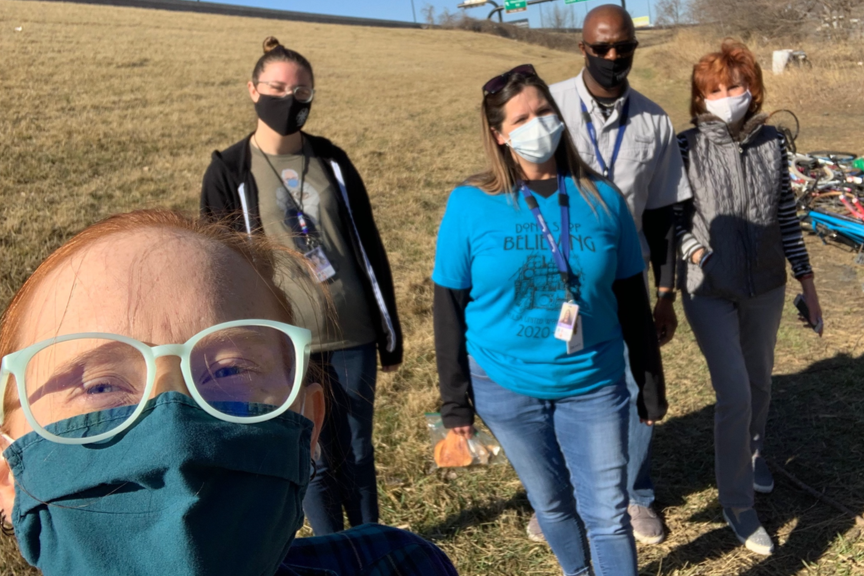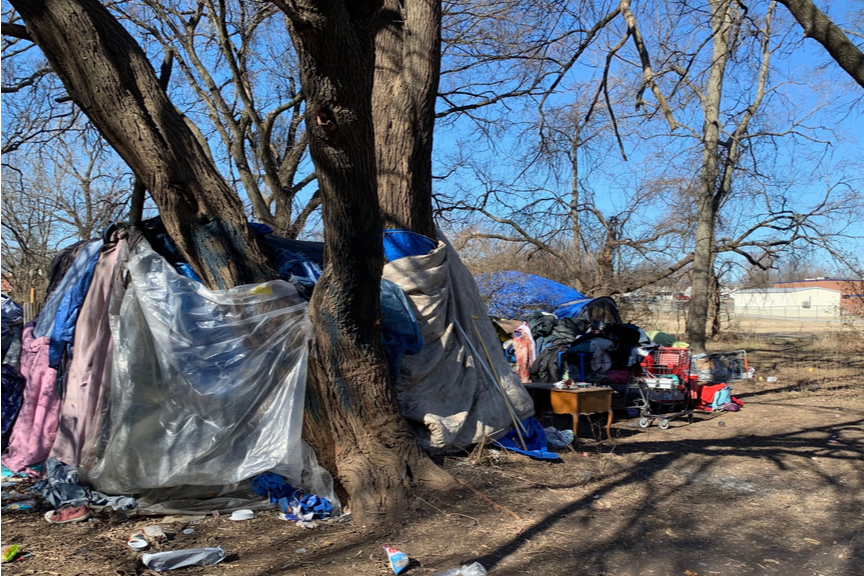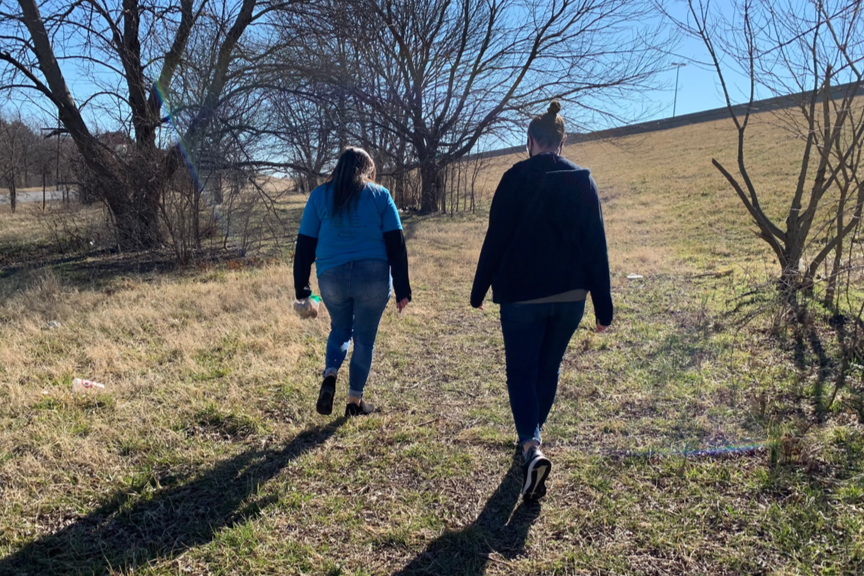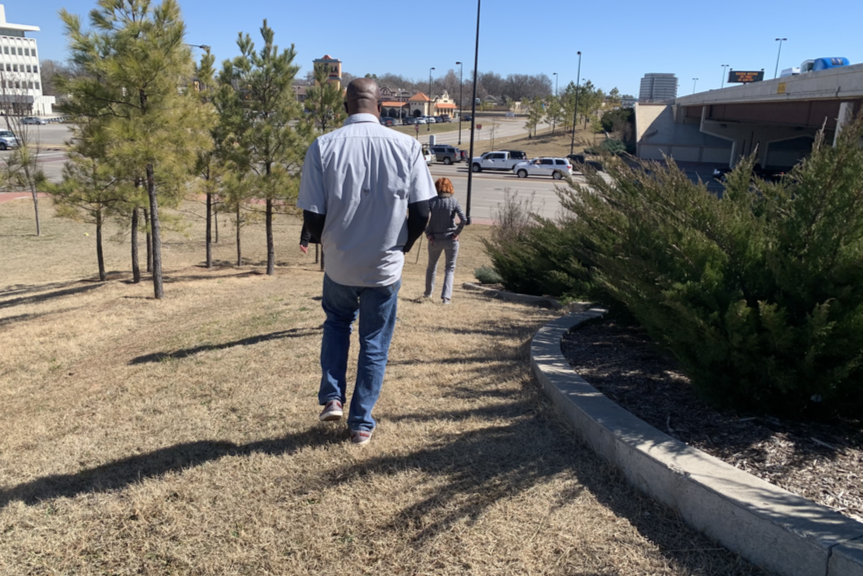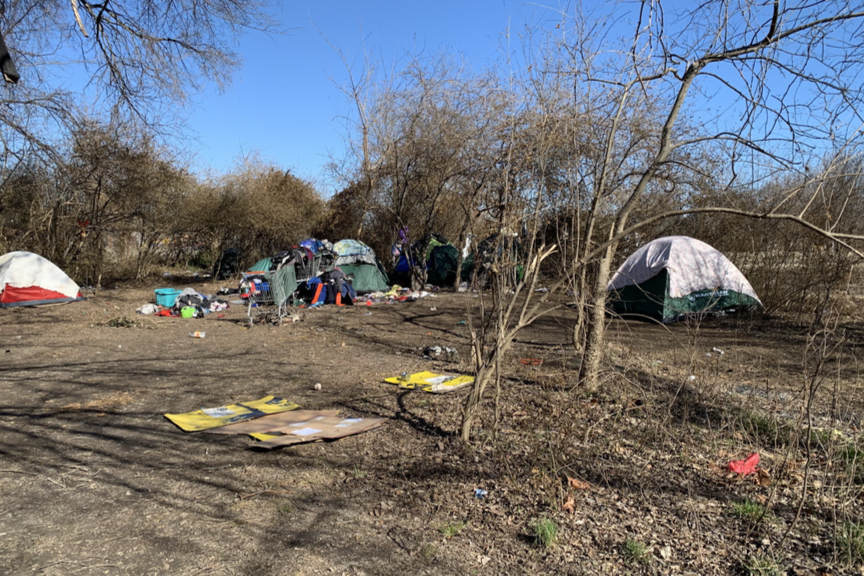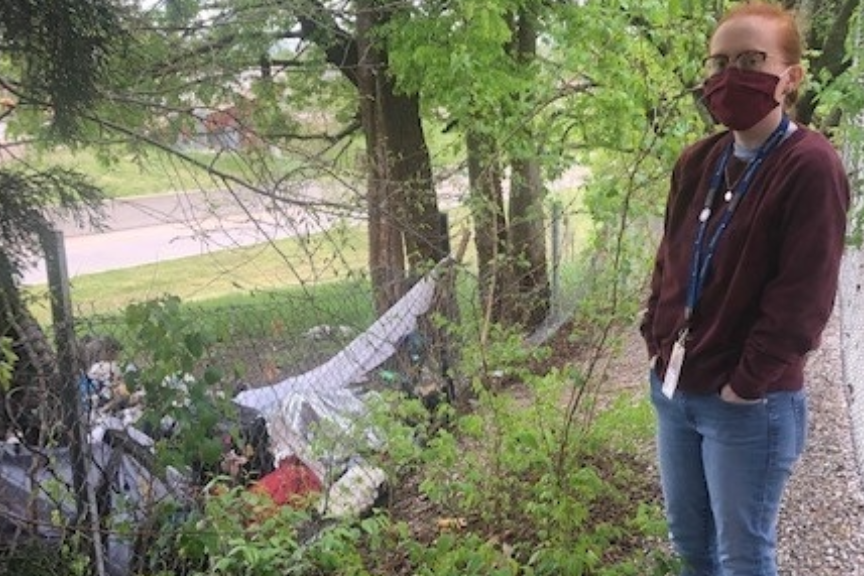COVID-19 hasn’t been easy for Annie, who has been homeless for quite some time. Harsh weather conditions and other circumstances forced her to move from an encampment and her whereabouts were unknown prior to being temporarily housed at the hotel in February. Because of local community partners, she is thriving and maintains sobriety.
Annie has also connected with resources she otherwise would not have been able to have: access to daily showers, hygiene products, daily meals, medical services, haircuts, access to Department of Human Services case workers, legal services, direct care services for veterans through the U.S. Department of Veteran Affairs, potential employers and many more.
The Family & Children’s Services Homeless Outreach Team (HOT) has been providing outreach and advocacy in collaboration with local community partners to homeless individuals that have been sheltering in temporary housing at a closed hotel in Tulsa since the winter storm in February. Housing is funded by private donations.
The goal is to have individuals linked to services and moved to permanent housing by the time the facility closes at the end of May. The Tulsa World reported that Housing Solutions will work with those who have not been placed in permanent housing by then to find other accommodations. The HOT team has completed 23 housing applications and paired 12 individuals with Family & Children’s Services (F&CS) case managers. The HOT team also has participated in resource fairs as well to educate individuals about F&CS.
This initiative is one of several the HOT team has been involved in since the beginning of the pandemic. F&CS has been serving Tulsa’s homeless for nearly 20 years and has developed several mental health care programs for the homeless. Community-wide outreach teams serve in a mental health clinic co-located in the Salvation Army’s downtown location, in Iron Gate, in the Tulsa City-County Library, and onsite at the Mental Health Association of Oklahoma’s supportive housing, the Tulsa Housing and Recovery Program (THARP).
The pandemic forced operations to cease temporarily, but when it was safe to do so, the HOT teams resumed services in October.
“When it was safe to go back to work to have face-to-face meetings with our clients, we really ramped up our efforts immensely to provide straight outreach because we knew about the disengagement of clients and we had to go find them,” said Kathy Loehr, program director of F&CS Homeless Outreach and Diversion Services. “We understood that due to the pandemic telehealth services was a barrier for some because there was no technology and no phone service. There was no telehealth and no office to visit due to closures.”
“So, when we restarted, we let everyone know that we were back in the office and that month we had the highest number of admissions we ever had experience in the past 12 months.” The team serviced 148 clients that month and 22 clients at Iron Gate.
Building rapport with clients is one of the many reasons the HOT team continues to make an impact in Tulsa.



